Journal Boards
Owner (BTU Rector)
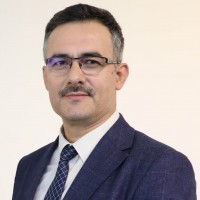
Editör-in-Chief
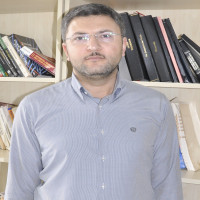
He received B.S. degree in Physics from Middle East Technical University in 2005. Then he received the M.S. degree in Electrical and Electronics Engineering from Atılım University in 2009. After that he received the Ph.D degree in Electrical and Electronics Engineering from Atatürk University in 2013. His currently research area is wave diffraction, reflection, propagation, shielding and wireless sensor networks. He is currently working at Bursa Technical University in Electrical and Electronics Engineering department.
Associate Editors
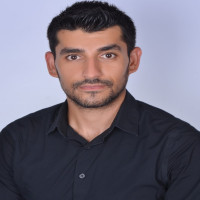
Dr. Cagatay Tasdemir is currently working as an Associate Professor at Bursa Technical University. He continues to involve with research, teaching, and supervising activities within the Department of Forest Industry Engineering, Department of Industrial Engineering, and Department of Biocomposite Engineering at Bursa Technical University, Türkiye. He received his M.S. degree from Oklahoma State University, USA, and completed his Ph.D. at Purdue University, USA. He is specialized in Lean and Sustainable Supply Chain Management, while his other research areas include Six-sigma Quality Optimization, Industry Innovation, and Demand Management and Forecasting.
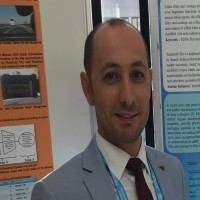
He received his Bachelor's, Master's and PhD degrees from Marmara University. His research interests include Machine Learning, Artificial Intelligence, Internet of Things, High Performance Computing.
Subject Editors
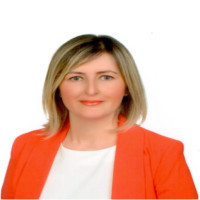
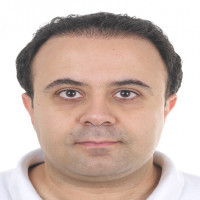
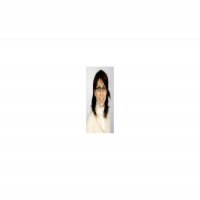
Deniz Uzunsoy is the appointed Professor of Metallurgy & Materials in Bursa Technical University. She received her PhD in Materials Science from The University of Birmingham-UK (2003) and BSc(Eng) in Materials & Metallurgy from Yıldız Technical University- Istanbul-Türkiye. She specializes in the field of physical and powder metallurgy, as well as nanotechnology. Her research is focussed on the understanding of the relationship between processing, microstructure and properties of materials for industrial applications in transport, energy, defence and electronic sectors.
She holds 1 patent and has published over 85 research papers in scientific journals and conference proceedings. She is a Fellow of Powder Metallurgy Associtaion.
Her current research interest includes muticomponent lightweight alloys, high entropy alloys, additive manufacturing and 3D printing, nanocomposites, graphene.
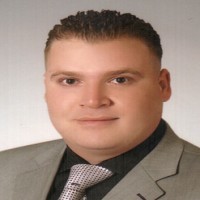
 Web
Web
Merhaba ben Doruk Ayberkin. 1981 yılında Mersin'de doğdum. Evli ve iki çocuk babasıyım. 2008 yılında Gazi Üniversitesi Fen Fakültesi Fizik Bölümü'nden mezun oldum. 2003-2009 yılları arasında Ankara'da özel sektörde yazılım uzmanı gibi unvanlar ile çalışarak çeşitli kurum ve kuruluşların yazılım projelerinde aktif olarak yer aldım. Botaş ERP projesi, Çevre ve Orman Bakanlığı ERP Projesi, TÜRMOB ve İSMMO yazılım geliştirme projeleri çalıştığım projelerden bazılarıdır.
2009 yılında özel sektördeki görevimden ayrılarak Bayburt Üniversitesi Bayburt Meslek Yüksekokulu Bilgisayar Programcılığı Bölümü'nde Öğretim Görevlisi olarak çalışmaya başladım. 2009-2012 yılları arasında Öğretim Görevlisi olarak görev yaptığım süre boyunca Bayburt Üniversitesi Bilgi İşlem Direktörlüğü bünyesindeki yazılımların geliştirilmesine ve süreçlerin dijitalleştirilmesine katkıda bulundum.
2012 yılında Hoca Ahmet Yesevi Uluslararası Türk-Kazak Üniversitesi Bilgisayar Mühendisliği Yüksek Lisans programından mezun oldum. 2017 yılında Atatürk Üniversitesi'nde Yönetim Bilişim Sistemleri alanında doktora çalışmalarıma başladım ve 2022 yılında doktora derecemi aldım. "Yenilik ve Kullanılabilirliğe Önem Vererek Dijital Pazarlama Sektöründe Blockchain Teknolojisinin Uygulanması için Bir Sistem Mimarisinin Tasarımı" başlıklı tezimle derecemi aldım. Şubat 2023 tarihi itibariyle Bayburt Üniversitesi Yönetim Bilişim Sistemleri Bölümü'nde Doktor Öğretim Üyesi olarak çalışmaktayım. Aynı zamanda Bayburt Üniversitesi Dijital Dönüşüm Ofisi'nde görev yapmaktayım.
Akademik kariyerim boyunca Bilgisayar Yazılımı, Sistem Tasarımı, Karar Destek Sistemleri ve Dağıtık Sistemler alanlarında çeşitli projeler üstlendim. Ayrıca bu konularda ulusal ve uluslararası dergi ve konferanslarda makalelerim yayınlandı ve sözlü sunumlar yaptım.
Şu anda araştırmalarım yenilikçi ve yaratıcı çözümler üretmeye odaklanıyor. Bunu gerçekleştirmek için başta "Blockchain Teknolojisi", "Yapay Zeka Algoritmaları" ve "Çok Kriterli Karar Verme" olmak üzere çeşitli alanlardaki önemli konuları ele alan akademik çalışmalar yürütüyorum.
Makine Mühendisliği, Otomotiv Mühendisliği, Taşıt Dinamiği, Taşıt Sistemleri ve Kontrol, İçten Yanmalı Motorlar
He received his Bachelor's and Master's from Marmara University, and PhD degree from Istanbul Commerce University. His research interests include Machine Learning, Data Security and Protection, Chaos-based Image Encryption, Speech Recognition, Biomedical Signal Processing.
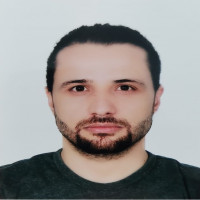
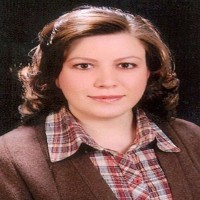
Dr. Gökçe TANER is an assistant professor at the Department of Bioengineering in Bursa Technical University in Bursa, Turkey. The academic degrees of Dr. Taner are as follows: M.Sc., Department of Molecular Biology and Genetics, Institute of Science and Technology, Gazi University, Ankara, Turkey, 2007; Ph.D., Department of Molecular Biology and Genetics, Institute of Science and Technology, Gazi University, Ankara, Turkey, 2015. She worked as a PhD student at Department of Pharmaceutical Toxicology in Hacettepe University, Faculty of Pharmacy; Ankara/Turkey; 2010-2015. She worked in INRA-TOXALIM, Research Center in Food Toxicology, Toulouse/ France and studied as a visiting scientist with Genotoxicity and Signaling Research Team for six months in 2013. She had supported with the Undergraduate Basic Sciences Scholarship (2001-2004) and International Research Fellowship Scholarship (2013) of The Scientific & Technological Research Council of Turkey. She is the members of Turkish Societies of Toxicology, EUROTOX, IUTOX and Turkish Society of Medical Biology and Genetics.
Her research area is genetic toxicology and cytogenetics. Scientific interests include antioxidant, cytotoxic, genotoxic and antigenotoxic effects of natural substances; Protective and therapeutic effects of antioxidant phenolic compounds in experimental models of disease; Cytocompatibility of biomaterials; Nanogenotoxicology, Determination of the effects of nanomaterials and nanoparticles on cells and DNA damage, and also genotoxic effects of food additives, and pesticides in cultured cells and in mouse bone marrow and tissues. She also has experiences on molecular biology and cell culture applications.

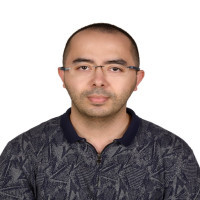
Mustafa Kocakulak received the B.Sc. degree in Electrical and Electronics Engineering in 2012 from Bilkent University. He received M.Sc. and PhD degrees in Mechatronics Engineering, in 2015 and 2023, respectively, from Bursa Technical University. From 2018 to 2019, he was a Visiting Student Researcher at The Autonomous University of Madrid (UAM). He is working as Assistant Professor at Department of Artificial Intelligence and Machine Learning at Bursa Technical University. His current research interests include image processing, reinforcement learning and deep learning tools for biometrics.

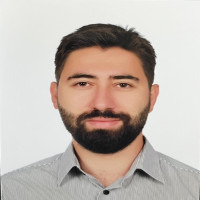
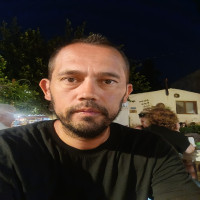
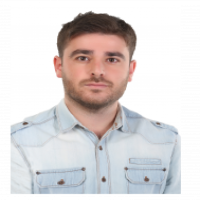
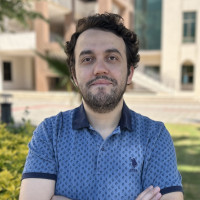
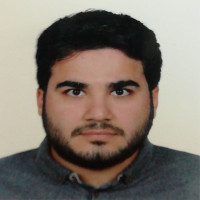
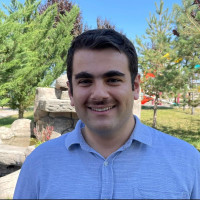
Editorial Board
Mohd Nizar Hamidon is a Professor at the Department of Electrical and Electronic Engineering, Universiti Putra Malaysia (UPM), and former Director of the Institute of Nanoscience and Nanotechnology (2017–2024). He holds a B.Sc. in Physics (Universiti Malaya, 1995), an M.Sc. in Microelectronics (Universiti Kebangsaan Malaysia, 2001), and a Ph.D. in Electronic and Electrical Engineering (University of Southampton, UK, 2005).
With over two decades at UPM, he has led research programs in electronic devices, focusing on oxide and carbon-based materials for sensor systems (gas, pressure, wireless). His work has been funded by international, governmental, and university grants, resulting in 250+ publications, book chapters, and the graduation of 11 Ph.D. and 15 M.Sc. students. He founded Serdang Paste Technology Sdn. Bhd., a startup commercializing research innovations.
An active collaborator with researchers from Turkey, Japan, Indonesia, and Thailand, he has also consulted for Malaysia’s Ministry of Communication on WSN-based monitoring systems. A frequent speaker at international conferences, he has served as an IEEE conference organizer, reviewer, and past Chair of the IEEE Electron Device Malaysia Chapter. His contributions bridge academia, industry, and policy in nanotechnology and sensor development
1984 yılında Bursa’da doğan Evren MUTLUGÜN, 2005 yılında Orta Doğu Teknik Üniversitesi Fizik Bölümünden lisans derecesini almıştır. 2007 yılında yüksek lisans, 2011 yılında
doktora çalışmalarını Bilkent Üniversitesi Fizik Bölümünde tamamlamıştır. Doktora çalışmaları süresince yarıiletken nanokristal temelli eksitonik etkileşimler üzerine araştırmalar yapmış, doktora sonrası araştırma çalışmaları için Singapur’da Nanyang Teknoloji Üniversitesi (NTU) Elektrik-Elektronik Mühendisliği Bölümüne katılmıştır. 2012-2014 yılları arasında NTU’da nanokristal içeren elektrolüminesant aygıtlar konusunda çalışmalarda bulunmuştur. 2014 yılında Abdullah Gül Üniversitesinde görev yapmaya başlayan Evren MUTLUGÜN, Mayıs 2022’den günümüze Abdullah Gül Üniversitesinde profesör olarak çalışmalarına devam etmektedir ve halen Abdullah Gül Üniversitesi Mühendislik Fakültesi Dekanı ve Rektör Yardımcısı olarak görev yapmaktadır. AGÜ Mühendislik Fakültesi, Prof. Mutlugün’ün dekanlığında tüm programları ile 2023 yılında Mühendislik Eğitim Programları Değerlendirme ve Akreditasyon Derneği (MÜDEK) tarafından program akreditasyonu almıştır.
Evren MUTLUGÜN’ün araştırma odağı optoelektronik aygıtlar için düşük boyutlu fonksiyonel nanokristallerdir. Boyut ve stokiyometri bağımlı optik özellikleri ile nanokristaller, sahip oldukları dar ışıma tayfları, geniş soğurma spektrumları ve yüksek ışıma verimlilikleri ile yeni nesil optoelektronik aygıtlar için önemli bir gelecek vadetmektedir. MUTLUGÜN, araştırma çalışmalarında gelecek nesil aydınlatma ve ekran teknolojileri için yeni nesil nanokristalleri hem optik, hem de elektriksel uyarım altında aygıtlar için kullanmaktadır ve nanokristal temelli eksitonik etkileşimleri incelemektedir. Evren MUTLUGÜN, araştırmalarında malzeme bilimi, fizik ve elektrik-elektronik mühendisliği disiplinlerinden faydalanmaktadır.
Evren MUTLUGÜN, 2025 MÜSİAD Kayseri Türkiye Yüzyılı Vizyoner Gelişim ve Akademi Ödülü, 2022 yılı TÜBİTAK Teşvik Ödülü, 2022 yılı ODTÜ Parlar Vakfı Araştırma Teşvik Ödülü, 2019 yılı Bilim Kahramanları Derneği Yılın Genç Bilim İnsanı Ödülü, 2017 yılı Türkiye Bilimler Akademisi Üstün Başarılı Genç Bilim İnsanı Ödülü, 2014 Bilim Akademisi Derneği Genç Bilim İnsanı Ödülü, 2014 yılı Feyzi Akkaya Bilimsel Etkinlikleri Destekleme Fonu (FABED) Eser Tümen Üstün Başarı Ödülü sahibidir. 2016 yılında Küresel Genç Akademi üyeliğine seçilmiştir. 2015 yılında İngiltere’de Royal Academy of Engineering tarafından düzenlenen etkinlikte katılımcıların gerçekleştirdiği iş fikri sunumlarında iş modeli, yenilikçilik, pazar fırsatları, sunum yetenekleri, toplumsal ve ekonomik katkı kriterleri değerlendirilmesi sonucu birincilik ödülüne layık görülmüştür. TÜBİTAK 1001, 1004, 1071, 1505, 1507, 3501, EU H2020 SME proje yürütücülüğü deneyimi olan Evren MUTLUGÜN, eş zamanlı olarak kurucusu olduğu ve Venture Capital yatırımı alan teknoloji firmasının direktörlüğünü yapmaktadır. 2023 Ocak ayından beri TÜBİTAK KAMAG Danışma Kurulu üyesi ve 2025 Ocak ayından beri TÜBİTAK Yetişkin Kitapları Yayın Danışma Kurulu üyesidir.
Nano Letters, Advanced Materials, Nano Today, ACS Nano gibi alanının en önde gelen dergilerinin de aralarında bulunduğu 75 üzeri SCI dergi yayınları, davetli konuşmaları ve birçok uluslararası konferans bildirisi bulunmaktadır. Prof. Dr. Evren MUTLUGÜN’ün h-indeksi 36 olup yayınlarına 3700 üzerinde atıf almıştır. (Google Scholar- Mayıs 2025).
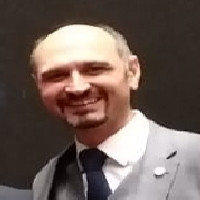
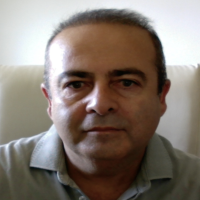
He was born and completed his pre-university education in Isparta. In 1984, he completed secondary school as the top student among 500 students (9.76/10.00: Isparta Merkez Ortaokulu) and was a team leader at the National TUBITAK Mathematics Competitions. In 1987, he completed high school as the top student among 800 students (9.87/10.00): Isparta SAIK High School) and got the mansion in the National TUBITAK Chemistry competitions. In the same year in 1987, he was, among 1/2 million students, over 99.8% in both the First Stage of Turkey's University Exam and the Second Stage of Turkey's University Exam.
He received his B.S.E.E. from Hacettepe University (1993 -one semester delayed), Ms. E.E. from Gebze Institute of Technology (1997), and Ph.D. in EE from Sakarya University (2005). During his Ph.D. studies, he was with the National Centre for Plasma Science & Technology at Dublin City University (2005, Ireland). In 2006, he was a fellow researcher at the University of New Mexico (USA) at the High-Power Electromagnetic Laboratory. He started his career with Goltas Cement Factory as a control engineer developing PLC codes in the AEG Modicon S5 platform for the factory Line-2 modernization project. By January 1994, he joined the Space Technologies Department (to UEKAE in 1996) at TUBITAK as a researcher. He spent five years of experience on radio telescope design, EMC platforms, facilities, military and civil-based EMC Tests, including MIL-STD 461-462 and some industrial projects between 1993 and 1998. He was a trainee in EMC measurement techniques and EMC perspectives in circuit design at the University of Missouri Rolla (USA, 1997). Between 1998 and 2002, he got industrial experience in GSM RF planning and optimization at TURKCELL, MOTOROLA, NEXTEL, AT&T, LUCENT Technologies, Saudi Telecom, AVEA, and ERICSSON as an RF Planning and Optimization Expert. He was with MOTOROLA as a regional manager between 2000 and 2001. He founded an RF planning company named Ant Neptune Telecommunication Limited and managed international projects between 2001 and 2003. In 2003, he returned to academic studies at S. Demirel University (Turkey) as a lecturer. He held the position of vice director at BAUM. He was with Dublin City University (Ireland, in 2004 and 2005) for his Ph.D. studies and with the University of New Mexico (USA) as a fellow researcher in 2006. He has been a member of Akdeniz University as an Assistant Professor in the Electrical and Electronics Engineering Department since 2006 and as an Associate Professor in the same department since 2012. He has also been a director of the Industrial and Medical Application Microwave Research Center (EMUMAM) since 2008. During 2010 and 2014, he was vice managerial at TUBITAK National Observatory. He was a member of the Board of Directors of Antalya Technopark between 2008 and 2012.
His research interests span a wide range of topics, including microwave propagation, radar systems, EMC, EMI, WiMAX and WiMAX-based video transmission, backbone and capacity planning for telecommunication systems, and optical polarimeters and communication. In addition to his research, he is also deeply interested in project management, total quality management, and university-industry relations, further demonstrating his comprehensive expertise in the field.
Total R&D Project Grand is over 4,000,000 USD (Managed)
Total R&D Project Grand is over 10,000,000 USD (Participated and Managed)
The total Telecommunication project budget is over 20,000,000 USD (Participated and
Managed)
Jagabandhu Mishra is a Post Doctoral Researcher (2024, Jan onwards) at Computational Speech Group, School of Computing, University of Eastern Finland. Early to this, he was a Senior Project Officer (SPO) in the "Bhasini: Speech Technologies in Indian Languages" project of the Ministry of Electronics and Information Technology (MeitY), Govt. of India (2022, April to 2023, Dec). He completed his Ph.D. on 2024, May from the Department of Electrical, Electronics, and Communication Engineering (EECE) at the Indian Institute of Technology Dharwad (IIT Dharwad) with a thesis titled "Implicit Systems for Spoken Language Diarization". His specialization is in speech signal processing, where he works on solving the research issues faced by the community for the development and deployment of speech-based applications like speech recognition, speaker recognition, voice translater, etc. Most of his works are towards the development of robust speaker and language recognition systems.
Pierluigi Siano (M’09–SM'14) received the M.Sc. degree in electronic engineering and the Ph.D. degree in information and electrical engineering from the University of Salerno, Salerno, Italy, in 2001 and 2006, respectively.
He is a Full Professor of Electrical Power Systems and Scientific Director of the Smart Grids and Smart Cities Laboratory with the Department of Management & Innovation Systems, University of Salerno.
His research activities are centered on demand response, energy management, the integration of distributed energy resources into smart grids, and electricity markets, and the planning and management of power systems.
In these fields, he has co-authored 8 international books, more than 800 articles including over 500 articles in international journals, which have received more than 25900 citations on Scopus, achieving an H-index of 78. Since 2019,
he has been awarded as a Highly Cited Researcher by the Web of Science Group. He has been the Chair of the IES TC on Smart Grids.
He is an Editor for the Power & Energy Society Section of IEEE Access, IEEE TRANSACTIONS ON POWER SYSTEMS, IEEE TRANSACTIONS ON INDUSTRIAL INFORMATICS, IEEE TRANSACTIONS ON INDUSTRIAL ELECTRONICS, IEEE SYSTEMS.
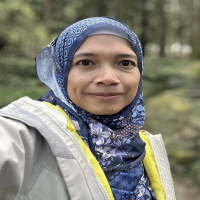
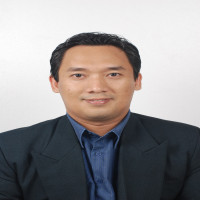
Language Editors
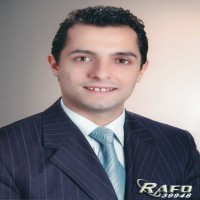
Layout Editor
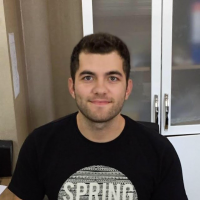
Soil Pollution and Control
Groundwater Pollution and Control Applications
Advanced Oxidation Processes
Catalytic Treatment Applications

The works published in Journal of Innovative Science and Engineering (JISE) are licensed under a Creative Commons Attribution-NonCommercial 4.0 International License.